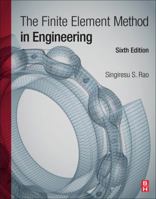The Great Silent Western Stars Movie Posters Book: Starring Broncho Billy Anderson, Har
Select Format
Select Condition 
Based on Your Recent Browsing
Book Overview
The golden age of westerns are back in a rip roarin, ' first-of-its kind movie poster book "The Great Silent Western Stars Movie Posters Book" is a tribute to the actors who pioneered this art from 1903 and 1929 and who paved the way for such legendary movie cowboys as John Wayne, Roy Rogers, Gene Autry, Randolph Scott, Clint Eastwood and others. Included are poster art from the films of Broncho Billy Anderson, Harry Carey, Gary Cooper, Dustin Farnum, Hoot Gibson, William S. Hart, Jack Holt, Buck Jones, Ken Maynard, Tim McCoy, Tom Mix, Will Rogers and Fred Thomson. This book is the first and only collection of one-sheet posters, lobby cards, insert cards and other promotional materials from silent westerns, spanning nearly three decades. In all, there are nearly 80 pieces of poster art, the majority in full color, and organized by year of release. Whether you're a western movie fan, collector or historian, you'll love "The Great Silent Western Stars Movie Posters Book.
Format:Paperback
Language:English
ISBN:150589297X
ISBN13:9781505892970
Release Date:January 2015
Publisher:Createspace Independent Publishing Platform
Length:80 Pages
Weight:0.39 lbs.
Dimensions:0.2" x 8.0" x 10.0"
Related Subjects
Americas Europe History History & Surveys Ireland Philosophy Politics & Social SciencesMore by Singiresu S. Rao
Customer Reviews
1 customer rating | 1 review
There are currently no reviews. Be the first to review this work.































